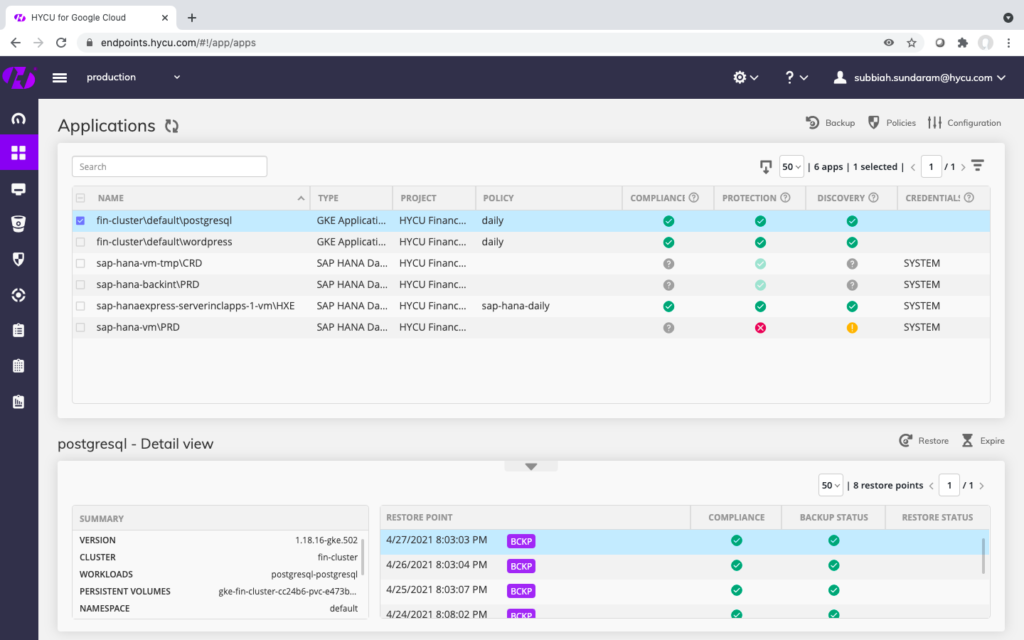HYCU adds Kubernetes Support to Data Protection Platform
HYCU, Inc. this week announced that the first instances of support for Kubernetes clusters are now available via its data protection platform hosted in the cloud.
Subbiah Sundaram, vice president of products for HYCU, says the multi-tenant HYCU Protégé service already supports a wide range of other platforms in addition to Kubernetes clusters. The time to add support for Kubernetes has arrived, because the platform is now starting to be more widely deployed in production environments, adds Sundaram.
A forthcoming report from the Evaluator Group finds 29% of enterprises are now using Kubernetes in a production environment, while another 40% are testing Kubernetes with a goal of progressing toward deploying Kubernetes in a production environment.
The first release of HYCU Protégé for Kubernetes supports Google Kubernetes Engine (GKE), with integrations with other Kubernetes cloud services expected to be certified shortly.
Sundaram said HYCU is unique because it maps the application to understand all of the relevant underlying infrastructures to be protected, takes a snapshot that is loaded onto the HYCU controller outside the Kubernetes cluster to backup that application or file. That approach offloads all data protection processes from the Kubernetes cluster in a way that doesn’t impact application performance, says Sundaram.
IT teams can also employ the HYCU Protégé for Kubernetes to clone entire application environments, notes Sundaram. That capability is critical as more workloads and their associated data are shifted between on-premises IT environments and multiple clouds, notes Sundaram.
The amount of data residing on Kubernetes clusters is starting to steadily increase as more stateful applications that require databases are deployed on them. Many IT teams are now trying to unify the management of computing and storage in Kubernetes environments as part of an effort to reduce operational friction. The challenge Kubernetes presents from a data protection perspective is as the number of clusters starts to multiply there’s a need for a centralized approach to managing backup and recovery across what will soon become a fleet of clusters, running in multiple clouds, on on-premises IT environments.
It’s not precisely clear who will be responsible for data protection when Kubernetes clusters are managed as part of a DevOps workflow. However, HYCU is betting that both traditional IT administrators and developers, which prefer to access a cloud service via a GUI to manage these tasks, will be involved. Users of the platform don’t need to have IT backup administration expertise to apply polices to workloads using the HYCU platform to globally apply policies, said Sundaram.
As has been the case with other platforms, there is now no shortage of options when it comes to backup and recovery for Kubernetes clusters. IT teams can choose between offerings that only work on Kubernetes and platforms that are employed to back up a wide range of platforms, of which Kubernetes is only one. Regardless of approach or, for that matter, who manages the process, the one thing that is clear is that the need to back up and then recover increasing amounts of data in Kubernetes environments is becoming more acute.





